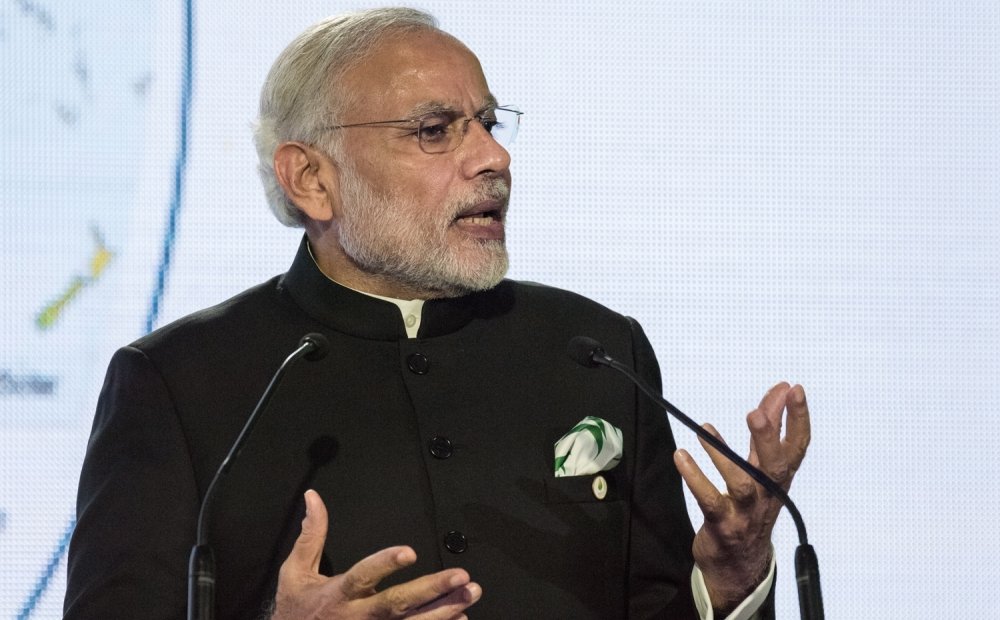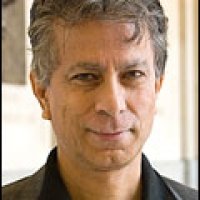Ground Truth Briefing: What Does India Expect of President-elect Trump?

The Takeaways
Michael Kugelman, of the Wilson Center’s Asia Program, began the discussion by underscoring that the U.S and India have had deepening ties since the Clinton administration in the 1990s. Both George W. Bush and President Obama have continued this path and in early December 2016 Secretary of Defense Ash Carter designated India a “major defense partner” of the United States, a status unique to India which institutionalizes the progress made to facilitate defense trade and technology sharing. Kugelman also highlighted areas of optimism stating, “One often hears that the U.S.-India relationship is one of the few that commands bipartisan support.” Possible areas of friction include President-elect Trump’s stated positions on immigration and his willingness to serve as a mediator in India’s troubled relationship with Pakistan.
Michael Kugelman noted that with President-elect Donald Trump we know relatively little of his views and opinions on India. In the past he has offered positive comments on India’s economy and stated that he believes India is a natural ally of the United States. Trump has business interests in India and Prime Minister Modi was quick to send his congratulations to the President-elect. Kugelman asked the panel on their general reaction to the Trump victory.
Suhasini Haidar, Diplomatic and Strategic Affairs Editor at The Hindu newspaper, emphasized that very few people in India were expecting a Trump win. It was expected that a Clinton administration would carry over many of the Obama policies between the two nations. While there was a negative reaction from many in the mainstream press in the United States, there has been more mixed reactions among Indians. While there had been negative reactions from many in India over Trump’s positions on immigration, Haidar noted that traditionally “there has been a certain comfort in the Indian establishment when it comes to Republican administrations over those of Democrats.”
Dipankar Gupta, a former Wilson Center Fellow and now Professor of Sociology at Jawaharlal Nehru University, suggested that one key issue ahead for the Trump administration’s relations with India would be if the President-elect would take Obama initiatives on clean energy forward. Another is the U.S. relationship with Pakistan. Gupta explained that many in the Indian academic community expressed hope that Trump would be much more supportive of anti-terrorism initiatives and that his administration would have a renewed focus on stemming terror attacks staged in Pakistan.
Gupta also suggested that populist movements around the world should be taken much more seriously. “If the United States and United Kingdom behave badly, this sets a bad example for aspiring democracies around the world.” Gupta stated that the U.K. and U.S. are “lode stars” for the world’s perception of democracy and Trump did not have a positive impact on this perception in general. Gupta pointed out that President-elect Trump’s candidacy being seen by the American electorate as anti-immigrant was one of the key factors in his victory. Despite the fact that the U.S. economy performed well under President Obama, the “passions that drove people to vote for Trump are not the kind many openly espoused but were covertly embraced.”
Ambassador Kishan Rana, a former Wilson Center Fellow and former Indian Ambassador to Kenya and Germany, suggested that promises made by U.S. presidents during the campaign often mean little in terms of foreign policy implementation. Rana expressed his belief that Trump will not drastically reverse many of the paths set out by the Obama administration in the region. President-elect Trump may ask for more burden-sharing by Japan, South Korea, and others in Asia but the “situation on the ground” would most likely shape policy. “Does he really want to meddle in Kashmir affairs and does he really want to act as a mediator?” asked Rana. “I really don’t think so.” Rana concluded by observing that a key positive impact on India-U.S. relations by Donald Trump could be the fight against terror. Rana stated that while Pakistan also suffers from terrorism, it is nonetheless one of the largest supporters of terrorism in the world today. Rana believes Trump should be a natural ally in this fight, along with the Indian government.
Rana also expressed three key points which factor into deepening relations between the U.S. and India. The Indian-American community has been key in stabilizing the relationship since the 1990s, according to Rana, and observers frequently overlook this community as a factor. Also, India’s current economic dynamism and Trump’s role as a businessman could keep the relationship progressing. Finally, Rana concluded by emphasizing that “India doesn’t want to play the China card with the United States or anyone else. We treat each bilateral relationship on its own basis. We will not fall into the trap of becoming part of any of these coalitions against China.”
Dipankar Gupta highlighted one area of serious concern in the relationship. Trump’s stated anti-immigrant rhetoric may affect H1 visas for Indian citizens attending U.S. universities and training based in the United States. Also, the services sector, specifically information technology, could be drastically hurt by these policies as well.
Kugelman concluded by examining how the warm and productive relationship between President Obama and Prime Minister Modi fueled improved relations and asked if this would change after President-elect Trump takes office. He highlighted similarities between the two men including close ties to the business world, conservative constituencies, and “our country first” rhetoric.
Gupta noted that while there are similarities, the slogans “Make America Great Again” and “Made in India” differ in key ways. Trump’s statements are inward focused and Modi’s are outward, connecting India to the rest of the world.
Haidar suggested the relationship between Trump and Modi may even be closer than that which existed under President Obama, as both are viewed as “dealmakers and risk-takers.” Rana concluded by observing that both Trump and Modi are “master communicators” and this may serve as a catalyst for improved ties.
Speakers


Professor of Sociology, Center for the Study of Social Systems, Jawaharlal Nehru University, New Delhi, India
Professor Emeritus, Foreign Service Institute of New Delhi, and Senior Fellow, DiploFoundation, Malta and Geneva
Hosted By

Indo-Pacific Program
The Indo-Pacific Program promotes policy debate and intellectual discussions on US interests in the Asia-Pacific as well as political, economic, security, and social issues relating to the world’s most populous and economically dynamic region. Read more
